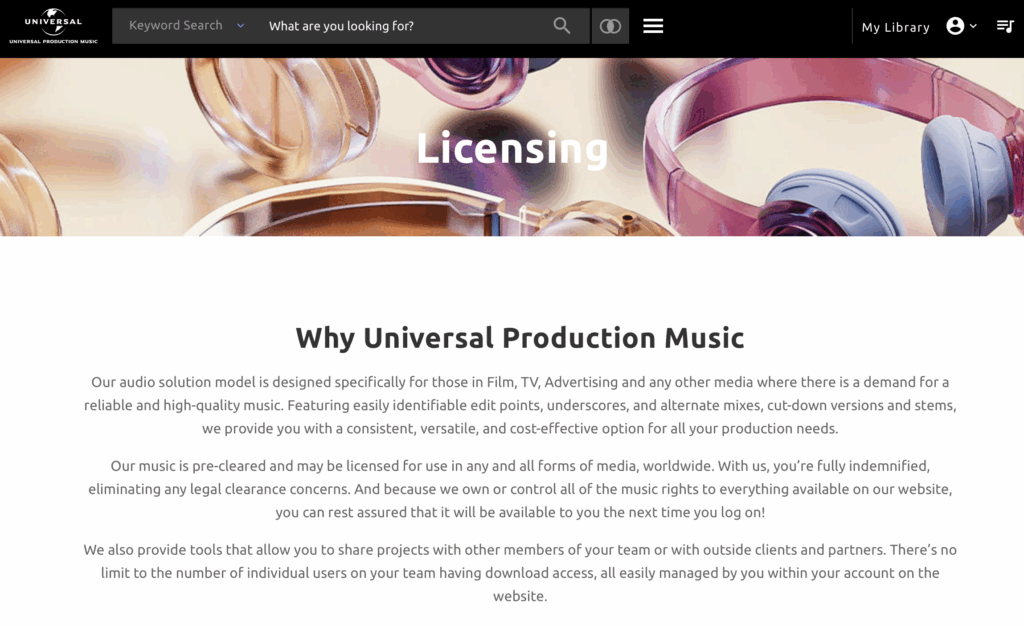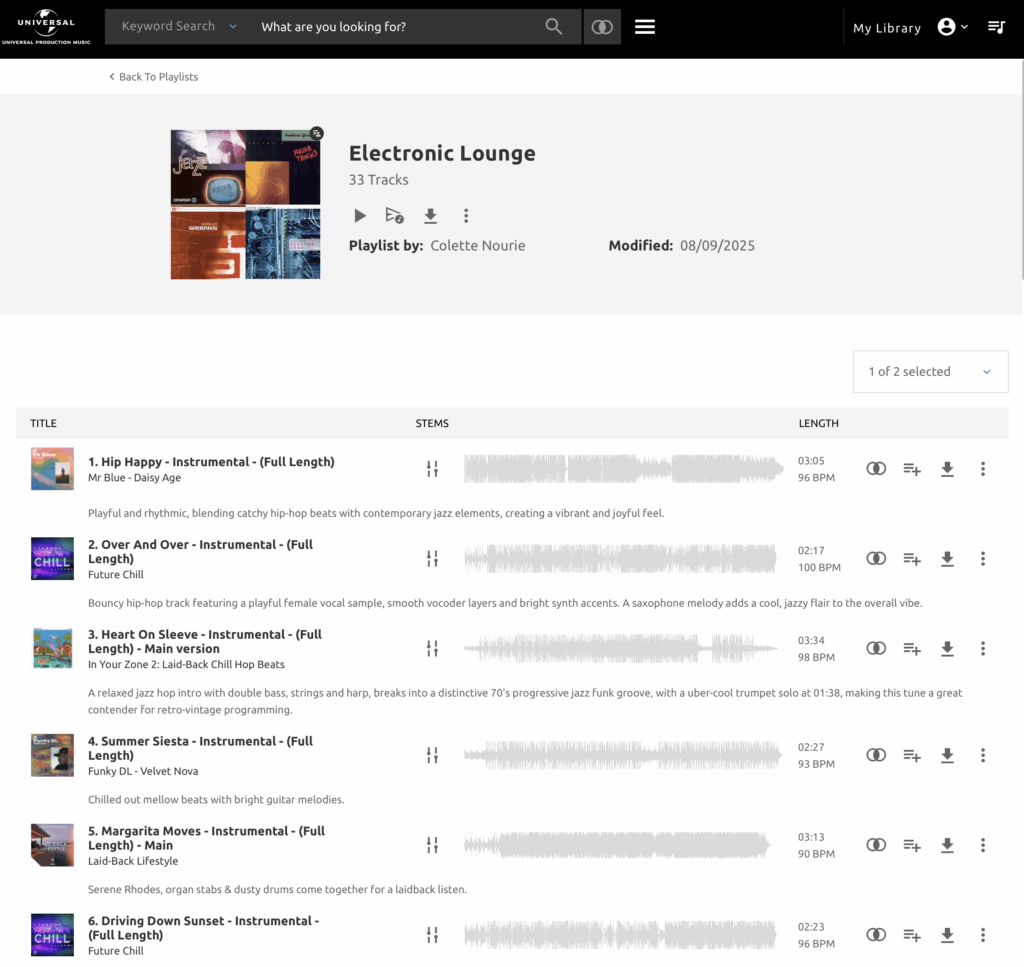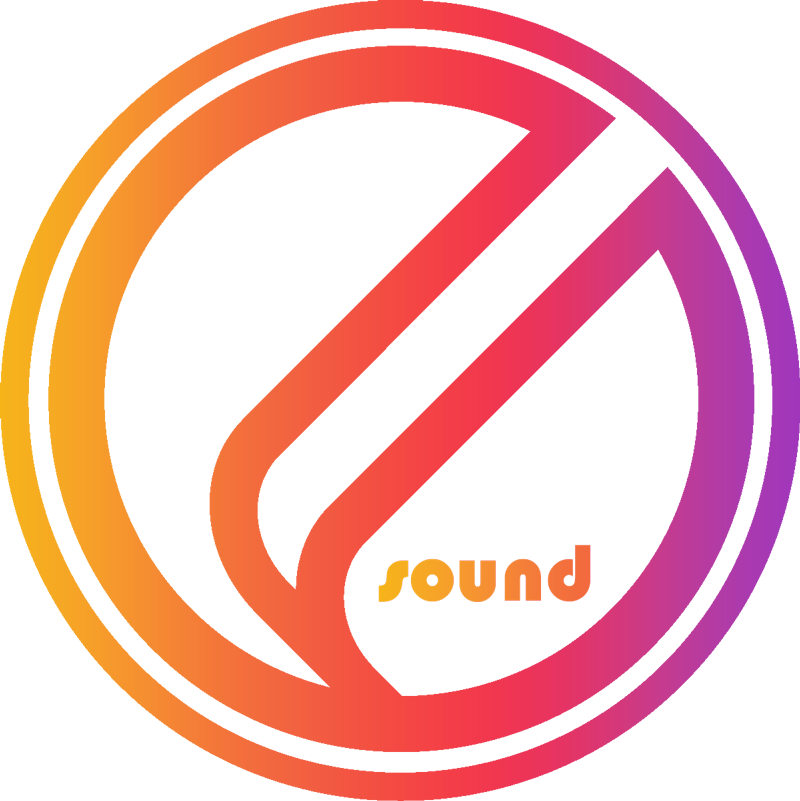Do You Have Any Royalty-Free Music We Can Use for the Show?
If I had a dollar for every time someone asked, “Do you have any royalty-free music we can use for the show?” — I’d have enough to license actual commercial music.
Most of the time it’s late into the event as well. Like the first day of load-in, or even after client rehearsal! As important as it is to have quality licensed music for your event, I find it’s often a footnote.
As sound engineers, we put hours into designing and planning to create a memorable aural experience. In turn, we appreciate when equal care is given to the content that gets played through that sound system. But like acquiring most things of quality, it takes time and planning.
That’s why I now have it in my preproduction checklist to specifically ask about broadcast music during the first conference call.
It wasn’t always like this.
Way back in the before times, live event broadcasts (at least the corporate-style ones I mainly do) were few and far between. You needed an uplink truck and rented air time on an actual satellite — so it was a big deal, and didn’t happen as often.
If you were like me, you had a folder on your machine full of generic play-ons and royalty-free tracks you’d collected over the years. Stockpiled flash drive fodder with filenames like Upbeat_Stinger_01.wav that triggered sounds reminiscent of being on hold with a call center. Technically royalty-free, but it should’ve paid a fine. (Ok, I’ll stop.)
⸻
Fast-Forward to Now
These days, all you need is internet access to go live, so it’s nearly every show that gets streamed or hosted as VOD. And yet, royalty-free music still gets treated like an afterthought.
Up until recently, when someone asked if I had royalty-free music, my answer was always the same:
“I have royalty-free music… but none licensed for this show.”
⸻
“It’s Royalty-Free… What Could Go Wrong?”
Oh… so, so much.
If you broadcast uncleared music, even if it seems royalty-free, you could run into:
•Content ID flags
•Copyright claims
•Revenue loss (ad revenue going to someone else)
•Muted audio
•Geo-blocked videos
•Livestream takedowns
In the worst case? You used something not royalty-free at all. That’s when copyright strikes hit, your stream goes dark mid-show, and you’re fielding angry calls from your client (and possibly your client’s lawyer).
“I’m not going to be responsible for an event getting pulled off YouTube Live because instrumental_playon_6.mp3 wasn’t cleared for takeoff.”
The longer you’re in this game, the more you learn to CYA (cover your ass). Self-preservation is survival in this industry.
⸻
So What Is Royalty-Free Music?
People throw the term around loosely. So let’s clarify:
Royalty-free music is music you can legally use without having to pay ongoing royalties each time it’s used.
However, it doesn’t necessarily mean the music is free. You’re paying for a license, not the song. The devil is in the details as they say.
⸻
Can You Use Commercial Music Without a License?
Sound engineers know you can’t legally just play Beyoncé at an event without clearance. But does that stop clients from requesting it for private events?
Absolutely not.
If the CFO wants to walk out to Thunder by Imagine Dragons at the company Sales Kickoff, guess what — they’re getting it. But that doesn’t mean you couldn’t technically get in trouble for it.
Why? Because commercial music is copyright protected. You need a license for:
•Public performance
•Broadcast
•Streaming
•Recording for VOD
And yes — those licenses can be expensive and complex
⸻
But is Uno-Reversing It Back to the Client the Answer?
Sure, you can toss the music responsibility back at the client, but is that the best move?
Arguably not.
We’re in the service industry after all. The more we can resolve in-house, the more invaluable we become.
⸻
Enter: Universal Production Music (UPM)
Shoutout to my buddy Jerome Fox at BOP Audio for turning me on to UPM back in 2021. They’ve been a game-changer.
James Hilbig, Music Licensing Executive at UPM, has got it all figured out. Their team offers:

•Music licensing from Grammy-winning composers
•Curated playlists by music directors who actually understand client briefs
•Clean licensing documentation
•A platform that’s actually built for professionals

Colette Nourie, Berklee College of Music graduate, has been working at UPM under Christina May as one of the music directors since January 2024. She recently put together two amazing playlists of walk-in music and play-ons for two different projects I was working on within just a few hours.
“Brian was looking for three different genres, Downtempo Electronica, House and Indie Pop. There are many ways to go about searching UPM’s library, I usually start with genre and mood, the most straightforward terms. Then I use the BPM filter to focus in on the right tempo for each genre as well as picking out different instruments from the “Instrumentation” filter that are present in each genre to dial it in even further.
As an example, when searching for “House” music, I went through different house subgenres; deep house, progressive house, chill house, jazz house. Brian and I went back and forth for a bit on this section and he ended up liking a lot of the Jazz House I had curated. To beef up that section I added more house tracks that featured instruments like trumpet and saxophone that had a relaxed cool vibe, yet still upbeat and driving. The key is breaking down creative notes/briefs into terms that you can search for, so you can find exactly what you’re looking for!
I absolutely love UPMs catalog and am so grateful I get to pitch and curate amazing music for my job.”
Professionally produced studio tracks with high quality downloads shareable via a web player with waveforms, previews, and download links. Think SoundCloud for professionals.
Colette adds “The real stars are the writers and producers, without them, we would have no music! “
Full stop… It’s a triple play.
I now have an agreement with UPM to sync music from their catalog to any live production I work with. Allowing for performance, broadcast, and VOD across all major platforms. Plus, each project comes with a signed publishing certificate on UPM letterhead outlining the rights. Sending that to the client? Chef’s kiss. It elevates your professionalism instantly.
“I can’t tell you how satisfying it is to offload this task and know it’s being done right.”
I can now go into a production with another tool in my belt – and with confidence tell the Producer in the very first call that I’ve got the music handled. All I need to know, is what kind of direction they want to go with music genre’s to bring their vision to life.
⸻
Want to Work Together?
If you’ve got a show coming up and want to handle music the right way — reach out:
⸻
Licensing Terms Every Audio Engineer Should Know
⸻
Performance License
Grants permission to play music publicly — like walk-ons at a corporate event. Covered either by:
•A blanket PRO license, or
•A direct performance license from a library or artist
⸻
What’s a PRO?
A Performing Rights Organization collects royalties for songwriters and publishers when their music is performed. In the U.S., major PROs include:
•ASCAP
•BMI
•SESAC
•GMR
If a venue, broadcaster, or stream platform has a blanket license from one or more of these, they’re covered to use music in that catalog.
⸻
Direct Performance Licenses (Non‑PRO)
Not all music is tied to a PRO. Platforms like:
•Musicbed
•Epidemic Sound
License music directly, often bundling:
•Performance
•Sync
•Mechanical rights
Think of it like a fully loaded show file — all patched, dialed in, and ready to go. No need to chase each individual license.
⸻
Blanket PRO License
Lets a company, venue, or broadcaster use any music in a PRO’s catalog for a flat fee — usually paid annually.
•Perfect for fast-paced, unscripted shows (e.g., sports, live events)
•Think: NBA games
•Without it, licensing a major-label track can run $100,000+
Modern platforms sometimes offer royalty-free bundles that include performance rights without needing to go through a PRO at all.
⸻
Limited Performance License
A single-use permit to publicly play a song for a specific event — perfect for:
•One-off livestreams
•Shareholder calls
•Brand launches
It’s a surgical strike, not a blanket. Often used by:
•Freelancers
•Smaller AV shops
•Productions without blanket PRO coverage
⸻
Synchronization License (aka “Sync License”)
Required anytime music is paired with video — even if it’s a livestream.
You need sync rights for:
•Pre-show reels
•Sizzle videos
•Branded montages
•Countdowns with music
Performance license ≠ sync license. Even if the stream is legal, the visuals+music pairing must be cleared.
⸻
Pro Tip:
Royalty-free ≠ “free-for-all.”
It just means you don’t pay ongoing royalties — you still have to follow the license rules.
